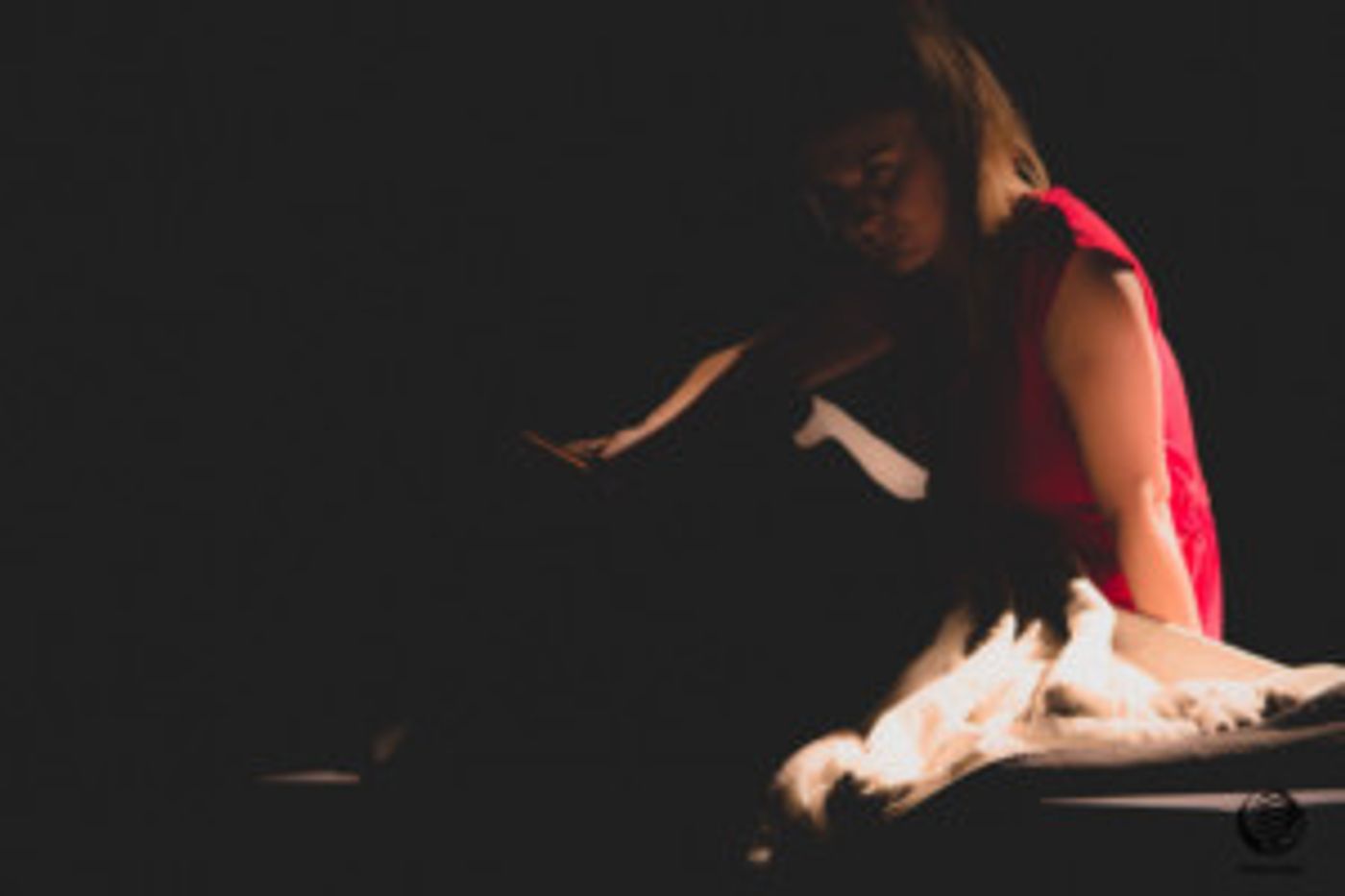Review: KILARI - a tale about falling apart at the Finnish National Theatre

I grab the program before the show, sitting at the doors of the Small Stage:
"Kilari is a Amanda Palo's self-written monologue about her life, which deals with sexual violence and mental health issues that result from that."
I look at my friend, blurting:
"Okay. Well. We'll see if I make it in there."
I myself haven't experienced sexual violence, but issues on mental health are familiar from my inner circle. These topics are a passion me, to spread words about them, to end the taboo, to hear stories of those that are still here today after and inside all the awfulness. Amanda Palo doesn't believe in delivering stories after the storm is over and one's survived as a hero. Just the opposite:
The show starts with a diagnosis we can hear from the speakers, lights are turned off. It works. The voice of the doctor tells about the panic attacks, the depression, anxiety. She was raped eight years ago, at 20, and the agony is various, depending on the season. But on the outside, as the diagnosis says, the patient seems positive and perky: and so the lights turn on and we can see Amanda smiling at us.
Because it's a show with only one woman on the stage, the choreographical and lighting elements are detailedly thought-out: where is she standing, is there light on the audience too or not. There's a small stage on the stage, which is wrapped in white paper and brings a magical soundscape when stepped on it. The audience is intently silent, focusing on the actor's delivery of her story. Olga Palo has done some good directing.
At times Amanda goes into a character, who on the outside is rather jolly, but after all quite awful: a lecturer, apparently male, whose take on rape is light and giggly to say the least. He has things to tell about rape's history as he, for example, tells the story of Tarquinius and Lucretia: "Tarquinius is interested in Lucretia and.. rapes her" he says before drinking a glass of water, to which he chokes on a little. We get to think about the way he chose to place the words as he drinks up, his back on the audience. At another point he gives us a lecture about the painting of the happenings of Tarquinius and Lucretia, which is actually quite awesome in terms of painting and its techniques and was very interesting. The character and his interaction with the audience is necessary in terms of uplifting the mood and overall experience of the rough story. Also the timings of him is good, for after the second lecture we get an image that we won't see this character again, but after a while he gets to surprise us with a third lecture: when he appeared and started walking to the left side of the stage where a lectern always waited, many of us in the audience groaned, either in frustration, surprise, laughter... you name it.
The mic stuck in the mic stand was genius in its brutality and supposed unintentionality. How terrible.
The "cottage" scene was the most finely written and delivered in my opinion.
The final sentence of the "Woman who accused Nelly of rape wants to drop the case" could have been louder than the previous ones to make a bigger impact in terms of sound design.
The ways anxiety and depression were expressed were very moving: a black tarpaulin nailed on me; a tightness between the area of chest and belly; as if someone would have thrown me under a truck, just to name a few. So many images we were able to identify to. Perhaps some of us got words to feelings they couldn't have expressed before by themselves. Meaningful.
The final discussion with the police was comforting, though it ended up being just wishful thinking. Still, I think it was beautiful and uplifting how at least someone had thought and written those words; at least someone had spoken out those words. The interaction with the audience was as if an invitation: do you agree with these words, will you join the project?
At the end I glance my friend, blurting once more: "Whoa. That was the shortest hour of my life."
KILARI
Script and on Stage: Amanda Palo
Dramaturgy and directing: Olga Palo
Visual Consultation: Samuli Laine
Technics: Julia Jäntti
Video: Laura Jantunen and Olga Palo
Costume design: Riitta Anttonen-Palo
Producer: Maria Junno
Dramaturgic consultation: Atte Järvinen
Voices on tape
Doctor: Kreeta Salminen
Police: Ville Tiihonen
Sister: Olga Palo
Friend: Markku Haussila
Nurse: Sirja Sauros

Reader Reviews
Videos


